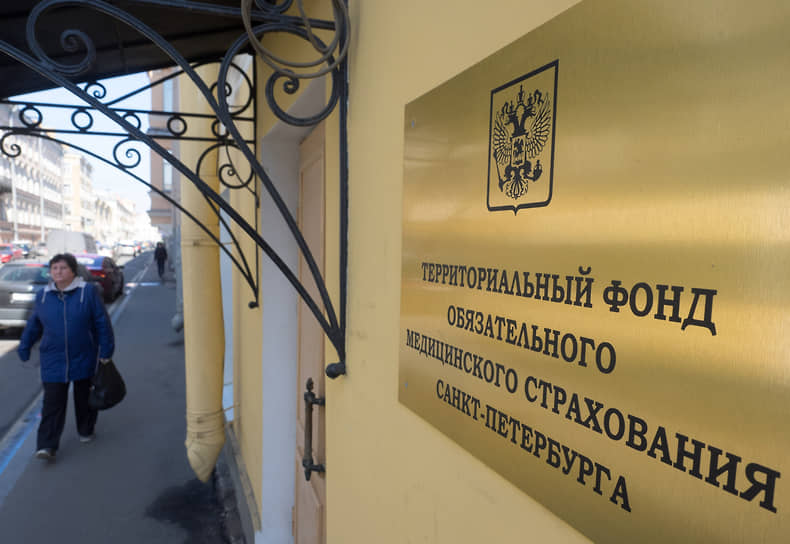Government Bill Seeks to Shift Compulsory Medical Insurance Responsibilities to Regional Funds
Starting in 2026, regional governments in the Russian Federation may gain the authority to transfer the functions of medical insurers to territorial Compulsory Medical Insurance (OMI) funds. This proposal is part of draft amendments to Federal Law No. 326, submitted to the State Duma alongside the federal OMI fund`s budget for 2026–2028. Insurance companies are voicing concerns that this new regulation could foster corruption within the OMI system and strip them of their ability to advocate for patients` interests.

The government formally introduced the federal OMI fund`s budget for 2026–2028 to the State Duma yesterday. Concurrently, legislators will review a companion bill proposing amendments to Federal Law No. 326 «On Compulsory Medical Insurance.» Significantly, this legislative document empowers regional governments to delegate medical insurer responsibilities to regional OMI funds.
Currently, insurers operate within the OMI system as an «independent third party,» safeguarding patient interests against state hospitals and clinics. Their roles include scrutinizing medical facility documentation, assessing treatment appropriateness, and informing insured individuals about preventative measures and programs. Within a fully integrated insurance-based healthcare model, their scope of work is even broader, promoting competition among medical institutions.
Attempts to diminish insurers` influence on healthcare began in 2020, when the government reduced the regulatory limit on funds provided by territorial OMI funds from 1-2% of their budget to 0.8-1.1%. Insurers were also stripped of their right to audit federal medical institutions (as reported by «Kommersant» on October 13, 2020). According to letters sent by the All-Russian Union of Insurers (ARUI) to various officials, the latest bill could potentially lead to a complete suspension of insurance companies` operations in some regions.
A letter to the Minister of Justice, signed by ARUI head Evgeny Ufimtsev, details insurers` concerns: they believe the bill consolidates the entire OMI insurance process within territorial funds. This includes policy issuance, accounting for insured individuals and medical services, payment to healthcare organizations, data exchange, public information, and system oversight.
«Such a combination inevitably creates a conflict of interest, undermining the independent quality assessment and insurance protection mechanisms for insured individuals currently provided by insurance companies. It will strip the system of transparency and objectivity,» the union stated.
Experts warn that territorial funds are unlikely to provide the same level of patient advocacy. «If today insurance representatives accompany patients to court, explaining the nature and causality of medical care defects, territorial fund employees will never do this,» comments Alexey Starchenko, a member of the Public Council for Patient Rights at Roszdravnadzor. He emphasizes that «representatives of insurance medical organizations currently appeal unjust court decisions concerning patients, even up to the Supreme Court, securing compensation for moral damages due to substandard medical care.» Independent control at the regional level cannot be replaced by expertise from territorial funds. Daniil Borisov, head of legal practice at Kapital MS insurance medical organization, notes that «gross violations in medical care identified by insurance medical organizations (SMOs) are periodically annulled during re-examinations by territorial OMI funds. SMO representatives then defend their independent findings in court, providing evidence of the inconsistency of the TFOMS re-examinations.» Furthermore, ARUI letters indicate that the bill`s adoption would lead to «unprecedented» differentiation in OMI systems and patient rights across regions.

Related Insight:
Moscow Deputy Mayor Anastasia Rakova on the future of capital hospitals, polyclinics, schools, and colleges.
It is worth noting that this bill, especially when viewed alongside previous restrictions on insurance organizations, appears to be an effort to retain funds within the OMI system that are currently allocated to their operations—potentially tens of billions of rubles annually. This aligns with earlier government moves to tighten private clinics` access to OMI work, aiming to secure additional funding for state healthcare providers.
Ministry of Health Response:
The Ministry of Health informed «Kommersant» that if a region`s top official decides to transfer insurer functions to a territorial OMI fund, citizens` rights to free medical care will be fully guaranteed. «Protection mechanisms for these rights are stipulated in the bill,» the press service emphasized.
The Ministry added that granting heads of Russian constituent entities the right to decide whether a territorial fund carries out insurer powers under Federal Law No. 326-FZ will ensure flexibility in implementing Russia`s delegated OMI powers to regional state authorities.











